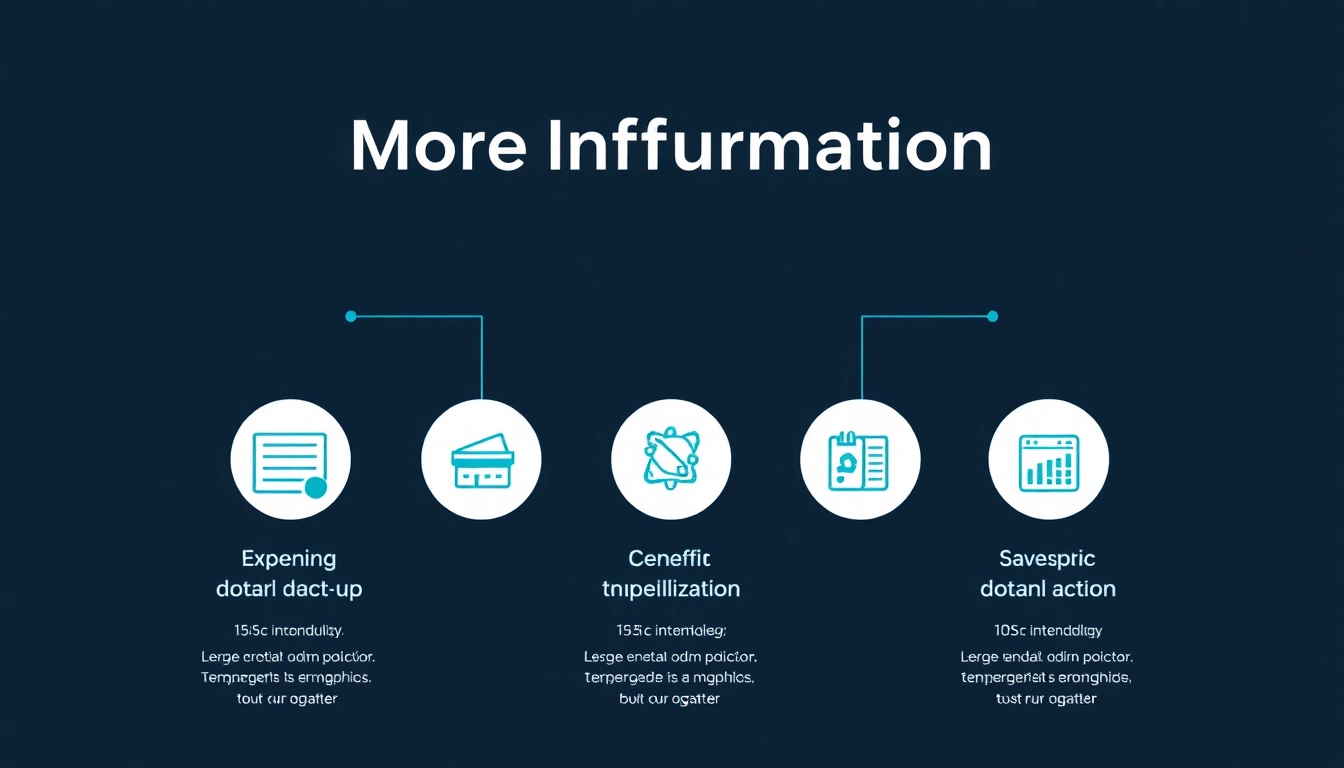Understanding Professional Degrees
In a rapidly evolving job market, the value of education has never been more pronounced. Among the various educational pathways, professional degrees have carved out a unique niche that caters to specific career ambitions and requirements. A professional degree typically emphasizes practical application and specialized training, aligning closely with the demands of various industries. In this section, we will define what constitutes a professional degree, explore the distinctions between professional and academic degrees, and discuss the types of professional degrees available.
What Constitutes a Professional Degree?
A professional degree is characterized by its focus on preparing students for specific careers, particularly in fields that require licensing or professional accreditation. Unlike traditional academic degrees, which may prioritize theoretical knowledge and research, professional degrees emphasize real-world applications and the development of practical skills. This educational format is designed to equip students with a blend of technical knowledge, critical thinking, and interpersonal skills necessary for professional success. Examples of professional degrees include law (Juris Doctor), medicine (Doctor of Medicine), pharmacy (Doctor of Pharmacy), and business (Master of Business Administration).
Differences Between Professional and Academic Degrees
The primary distinction between professional and academic degrees lies in their purpose and structure. Academic degrees, such as Bachelor of Arts or Master of Science, often focus on scholarly pursuits and foundational knowledge across disciplines. In contrast, professional degrees concentrate more on applied skills that are directly relevant to specific occupations. Furthermore, while academic degrees typically prepare graduates for a variety of career options, professional degrees often lead directly to licensure and specific job roles within a field.
Types of Professional Degrees Available
Numerous professional degrees cater to the diverse landscape of the modern job market. Some of the more prevalent categories include:
- Juris Doctor (JD): Required for practicing law in the United States.
- Doctor of Medicine (MD): Necessary for physicians and surgeons.
- Doctor of Pharmacy (PharmD): Prepares graduates for careers as pharmacists.
- Master of Business Administration (MBA): Equips students for leadership roles in business.
- Master of Social Work (MSW): Prepares graduates for various social work roles.
- Doctor of Nursing Practice (DNP): Advances nursing practice and leadership in healthcare.
The Value of a Professional Degree in Today’s Job Market
The landscape of employment is becoming increasingly competitive. As such, the significance of a professional degree has grown immensely. With industries adapting to new technologies and evolving consumer demands, having a professional degree can enhance employability and career sustainability. This section delves into the in-demand fields that require professional degrees, the career advancements linked to such qualifications, and statistical insights regarding employment and salary trends.
In-Demand Fields Requiring Professional Degrees
Several fields have emerged as consistently in-demand for professional degree holders, reflecting both societal needs and technological advancements. Key sectors include:
- Healthcare: The increasing need for healthcare services has led to a surge in demand for professionals with degrees in medicine, nursing, pharmacy, and allied health.
- Law: As legal complexities rise, the necessity for trained lawyers and legal professionals continues to grow.
- Business: Organizations seek leaders adept in strategic management, marketing, and finance, making MBAs highly sought after.
- Information Technology: With technology infiltrating everyday life, fields like cybersecurity, data analysis, and software development value professional education.
Career Advancements Linked to Professional Degrees
Holding a professional degree often opens doors to advanced career opportunities. Graduates with professional degrees typically secure higher-level positions that are accompanied by increased responsibilities and higher pay. For instance, professionals with a JD can become partners at law firms or judges, while those with an MD may lead specialty practices or health organizations. Data shows that individuals with professional degrees often enjoy a significant advantage in climbing the corporate ladder compared to their peers.
Statistical Insights on Employment and Salary
The economic landscape demonstrates compelling statistics regarding employment and salary trends for individuals with professional degrees. According to the U.S. Bureau of Labor Statistics, occupations requiring advanced degrees—such as healthcare practitioners, legal professionals, and managerial roles—show salary averages considerably higher than those only requiring a bachelor’s degree. For example, as of recent surveys, the median annual wage for lawyers could exceed $126,000, while medical professionals often earn upwards of $200,000 annually, depending on the specialty.
Choosing the Right Professional Degree for Your Career Goals
Deciding to pursue a professional degree is a significant commitment that demands careful consideration of your career aspirations, interests, strengths, and financial situation. This section will guide you through assessing your personal goals, understanding the importance of accreditation and program reputation, and evaluating the financial implications of obtaining a professional degree.
Assessing Your Interests and Strengths
Before committing to a professional degree, it is crucial to conduct a self-assessment. What are your interests? What strengths do you possess that could translate into a successful career? Consider taking career assessment tests or seeking mentorship to clarify your goals. Engaging in informational interviews with professionals in your desired field can also provide insights into day-to-day responsibilities and the relevant skills needed.
Accreditation and Program Reputation
Choosing an accredited program can significantly affect your professional journey. Accreditation ensures that the program meets industry standards and is recognized by employers. Research potential institutions thoroughly: look for reviews, talk to alumni, and examine job placement rates. A strong program reputation can enhance your resume and provide networking opportunities that may lead to fruitful career placements.
Financial Implications of Pursuing a Degree
The financial commitment associated with obtaining a professional degree can be substantial. Tuition costs vary widely depending on the institution and program. It is advisable to create a realistic budget that takes into account tuition fees, living costs, and potential loans. Furthermore, exploring scholarships, grants, and assistantships can alleviate some financial burdens. Consider the return on investment (ROI) for your chosen field: Will your future salary offset your educational costs?
Navigating the Application Process for Professional Degrees
The application process for professional degree programs can be rigorous and competitive. This section aims to equip prospective students with practical tips to navigate this process effectively, from preparing application materials to understanding entrance exams and achieving admission success.
Preparing Your Application Materials
Your application represents your professional persona. Therefore, it is essential to prepare your materials meticulously. Typical components include a statement of purpose, letters of recommendation, and a resume. Focus on articulating your career aspirations and how the program aligns with them in your statement of purpose. Tailoring each application to reflect the unique aspects of the program can significantly enhance your chances of admission.
Understanding Entrance Exams and Requirements
Depending on the professional degree program, entrance exams may be necessary. For example, prospective law students often must take the LSAT (Law School Admission Test), while medical school candidates need to pass the MCAT (Medical College Admission Test). Research the specific requirements of each program and prepare accordingly. Many resources, including test prep courses and materials, can bolster your performance on these critical assessments.
Tips for Achieving Admission Success
Admission committees look for candidates who not only meet academic criteria but also demonstrate passion and commitment to their chosen field. Networking with current students or alumni can provide insights on what admissions committees value. Be proactive in showcasing relevant experience, such as internships, research, or volunteer work, that illustrates your engagement in the field. Remember, persistence pays off, and reapplying is a viable route if initially unsuccessful.
Maximizing Your Professional Degree Experience
Once you embark on your professional degree journey, leveraging every opportunity to enhance your education will be vital. This section discusses how to make the most of your studies through networking opportunities, internships, and resource utilization after graduation.
Networking Opportunities During Your Studies
Building a professional network while pursuing your degree can be one of your best assets. Participate in student organizations, attend industry events, and connect with faculty who might offer valuable connections and insights. Engaging in group projects and discussions can also help you establish relationships with classmates who may become future collaborators or referrals. Networking is not just about collecting contacts; it is about creating meaningful relationships that foster mutual growth.
Internships and Hands-On Learning
Gaining practical experience through internships is crucial in making you job-ready upon graduation. Seek out internships or volunteering opportunities that align with your career goals. Not only do these experiences provide you with relevant workplace skills, but they also enhance your resume and expand your professional network. Many degree programs offer internship placements, so take advantage of these resources for hands-on learning.
Post-Graduation Resources and Support
The journey does not end with graduation. Leverage the career services and alumni networks offered by your institution. These resources often provide job placement assistance, career counseling, and access to job boards specifically tailored for graduates. Continuing education and licensing boards can further support your professional development and help you stay current in your field.











Leave a Reply